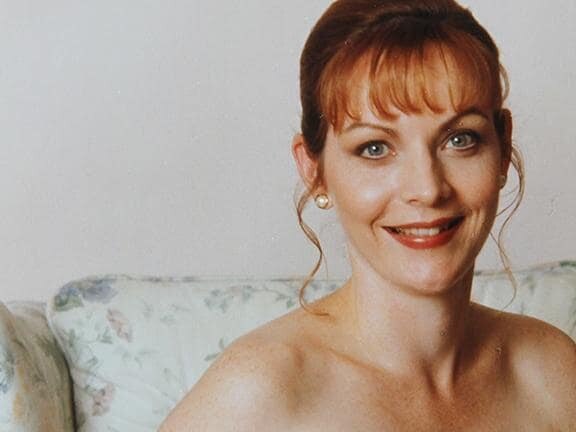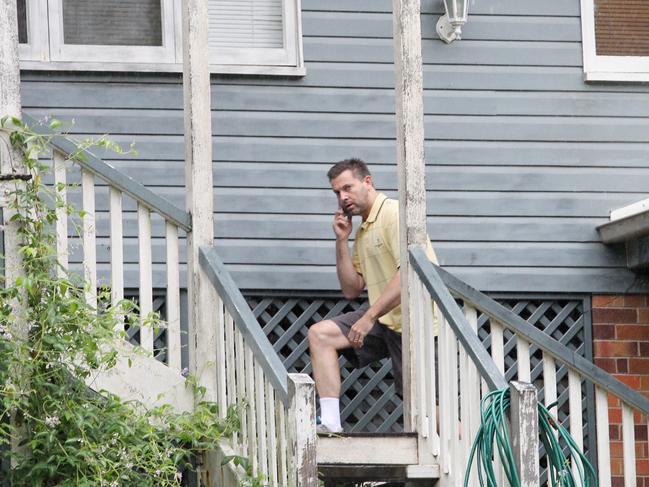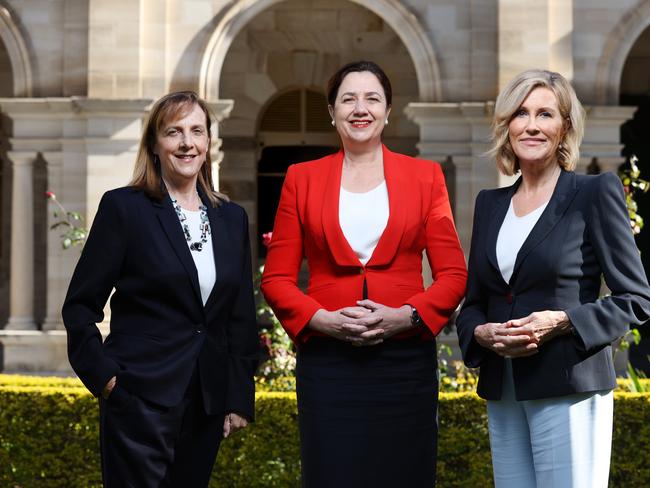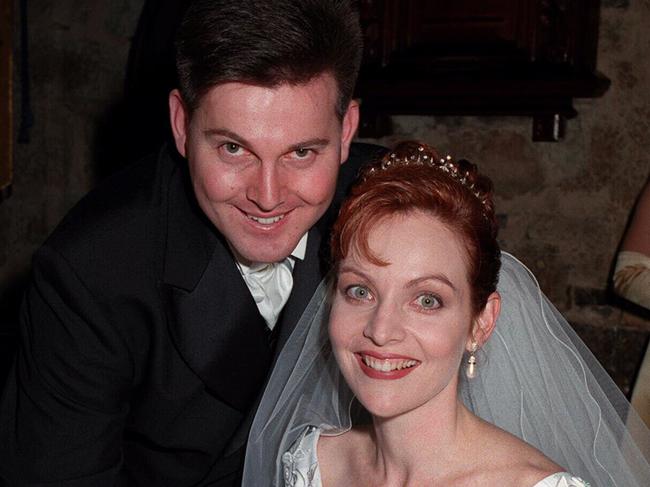Coercive control education push: Allison Baden-Clay ‘no idea’ how much killer husband controlled her
Allison Baden-Clay probably did not know “the level of control” husband Gerard had over her before he murdered her in 2012, her sister says, as she pushes to educate people on unhealthy relationships.
Police & Courts
Don't miss out on the headlines from Police & Courts. Followed categories will be added to My News.
Allison Baden-Clay probably did not know “the level of control” Gerard had over her because less was known about coercive behaviour at the time of her murder, her sister Vanessa Fowler says.
The Sunday-Mail can reveal Ms Fowler will replace veteran journalist Kay McGrath as co-chair of the Domestic and Family Violence Prevention Council from June 1. Vanessa Fowler, who has spent years campaigning around domestic violence, said she agreed to take up the post at the request of Premier Annastasia Palasczcuk and wants to focus on educating young people about coercive control and unhealthy relationships.
Allison, a mother-of-three and accomplished ballerina who spoke multiple languages, was murdered in 2012 by her husband Gerard.
Gerard, a real estate agent who considered himself to be a business leader in Brookfield where the family lived, murdered his wife so she would not discover he was having an affair with another woman.
Police also believe Gerard was motivated by money and presented evidence in court that he had sought to obtain his wife’s life insurance at a time when he was heavily in debt.
While Allison’s family knew she was in a controlling relationship, more of Gerard’s behaviour came to light during his murder trial after police found her journal.
In it, she described a husband who was mean and insulting and how she felt lonely within their marriage.

Ms Fowler said the conversation about domestic violence - and particularly coercive control - had changed so much since her sister’s murder.
“I think that she was aware that the life that she was living was not a normal situation,” she said.
“I’m not sure that she was aware of the level of control that he had over her.”
But Ms Fowler said that even if Allison had had more knowledge about coercive control, it did not necessarily mean she would have left her marriage.
“She didn’t leave because of the consequences in particular involving her girls,” Ms Fowler said.
“Her girls meant the world to her and she did everything she possibly could to keep them safe.
“And I think that’s ultimately the reason why she did stay.
“She was determined to make the marriage work - but he had other ideas.”
Allison met Gerard while they were both working at Flight Centre. At the time, she was the global human resources manager and a successful career woman.
Ms Fowler said it was after the birth of their first child that Gerard gained more control over his wife.
“We did see changes in her behaviour,” she said.
“Obviously after the birth of her first child she was isolated. She was a stay at home mum and I think that’s where most of the control started because he had her where he wanted her and was able to … listen in to the baby monitors and things like that.”

Gerard used baby monitors to listen in on his wife’s conversations, controlled the finances, deleted the phone numbers of Allison’s relatives from her mobile and blocked them from calling the landline.
“We did see a lowering of her self-esteem,” Ms Fowler said.
“She wasn’t as confident as she used to be.
“Although, in saying that, her appearance never changed, she always had a smile on her face, she was always dressed beautifully.
“So it was very difficult to pinpoint what was going on behind closed doors.”
Ms Fowler said she would use her time chairing the council to create a “whole of community” approach to combating domestic violence.
“I want to get the message out to our young people, educate people to change the way they think about gender and talk to them about recognising the signs of coercive control,” she said.
“I think gender stereotypes are embedded in our psyche from a very early age.
“I think that parents have a huge influence on their child’s perception of what gender is and the way that we treat others and it all comes down to respect.
“I think it’s important to continue to ensure that everybody takes a personal interest in making change.”

Ms Fowler said it was hard for Allison’s family to see reports of domestic violence murders.
“It’s always a very difficult time because it obviously brings back a lot of emotion for us,” she said.
“From my perspective it’s devastating to think that even though we have come a long way, we still have a lot of work to do.
“Another life is lost, even perhaps leaving behind children of similar ages to Allison’s girls.
“I often think of the family and the children that are left behind and the challenges that they’ll face in the years to come.”
Ms Palaszczuk - who will today announce the appointment - said she admired Ms Fowler’s courage and tenacity.
“Having suffered the heartbreak and the dreadful loss from her sister Allison’s murder at the hands of her husband, Vanessa stepped up as a passionate advocate for all the victims and survivors of the shocking scourge of domestic violence,’’ Ms Palaszcuk said.
“The strength that she and her family have shown in the wake of such a tragedy is inspiring.
“She is a person of outstanding calibre and with a passionate commitment to help drive the on-going roll-out of our critically important domestic and family violence reforms.’’
Kay McGrath OAM said a highlight of her three years at the helm was the work she did with the people of Thursday Island where she met with elders and community leaders about combating domestic violence in Indigenous communities. But she said her aim has been to make a difference in one life at a time.
Ms McGrath will take on a new role as a state-wide Champion, leading the Domestic and Family Violence Prevention Champions Group.

“I have met so many dedicated and passionate people and many of them are feeling winded and dispirited because it’s such a relentless issue,” Ms McGrath said.
“But every day they pick themselves up and they go again in the belief that they can make a difference.
“There is valuable, measurable, important life changing work being done every minute of every day.
“And we mustn’t lose sight of that and we have to draw hope from that.”
She said Ms Fowler will bring “strength and commitment” to the role.
“Allison would be so proud of her, I’m sure. And her nieces (Allison’s daughters) will be proud, and her parents. She’s really stepping up.”
Ms Palaszczuk said Ms McGrath had shown ‘unwavering dedication’ to protecting women and children in Queensland for more than three decades.
“Without her resolute leadership, we would not have achieved what we have so far or be as determined to continue to achieve change,” Ms Palaszczuk said.
Ms Fowler will start her 12 month term alongside fellow co-chair former Queensland Police Commissioner Bob Atkinson AO APM on June 1.




